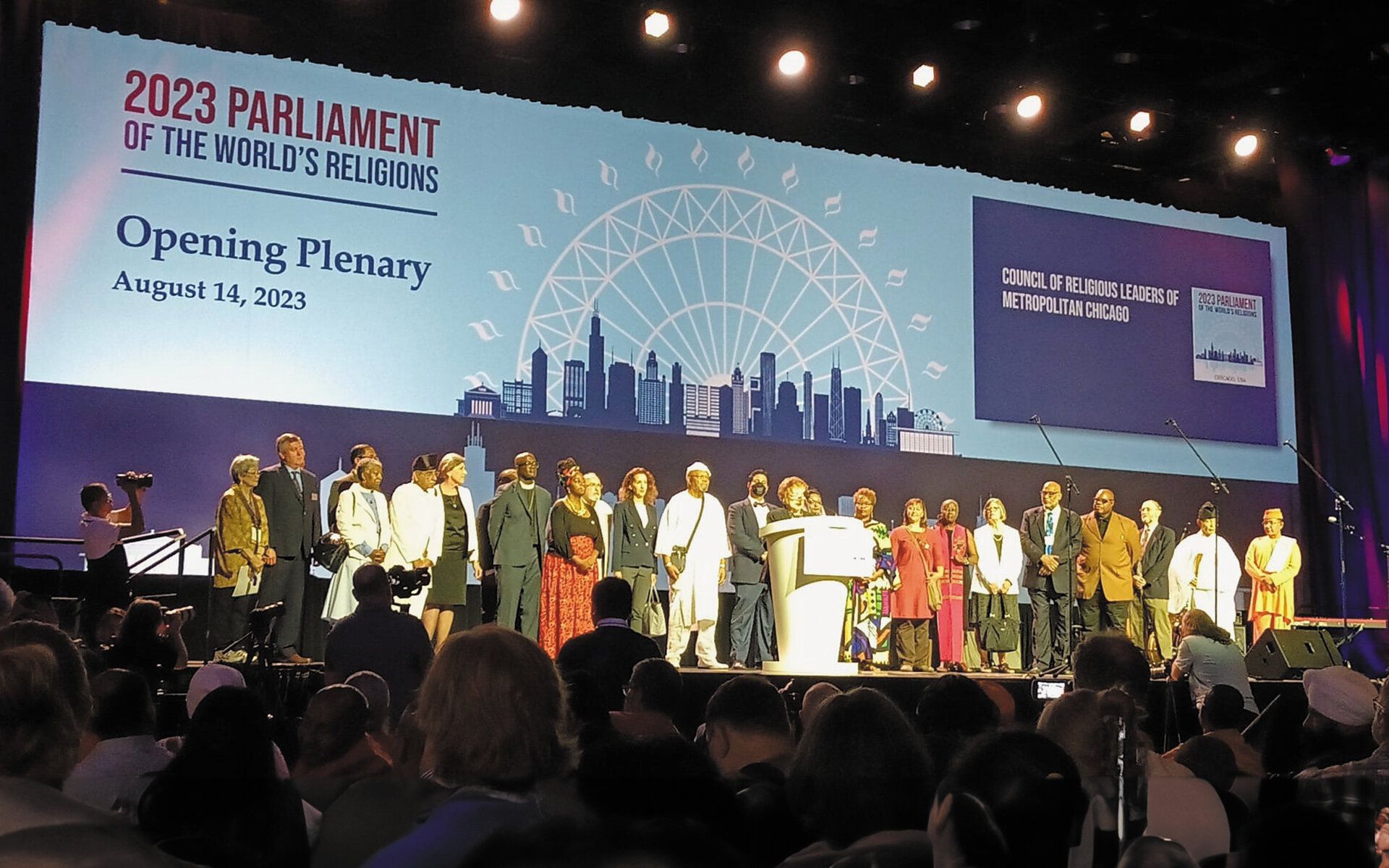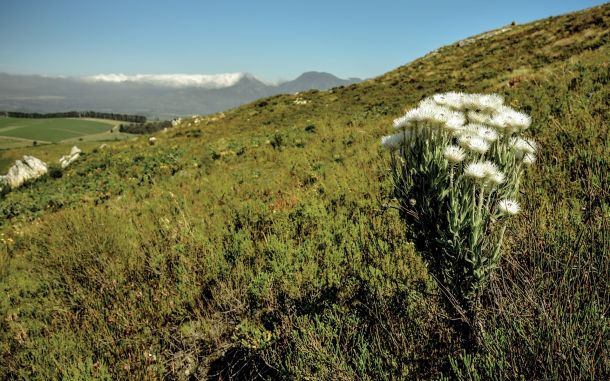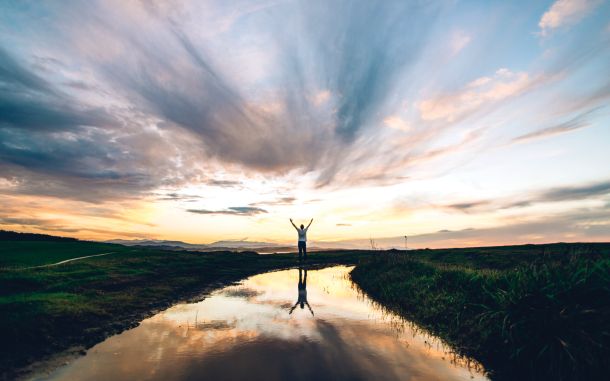Love and Service at Times of Hardships

In This Article
-
2023 Parliament of the World's Religions focused on fostering dialogue, understanding, and empathy among people of diverse religious and spiritual backgrounds.
-
The Parliament serves as a platform for interfaith conversations that aim to promote peace, progress, and justice, particularly in times of political turmoil and human rights violations.
-
For a peaceful society it is important to promote inclusivity, selfless service, and the power of humble actions in building connections between various beliefs and traditions.
The flourishing existence of peaceful social relationships begins with the seed of dialogue. Rather than categorizing human beings into labels of specific religions or belief backgrounds, one should yearn for the beauty that lies within true understandings of actions and the strength that is derived from channels of interfaith conversations. Perhaps such connections are made when a person practicing their religion is provided a platform, while also taking part actively in the efforts that are put forward to create spaces where they are willingly listened to rather than simply heard.
This distinctive factor highlights how the Parliament of the World’s Religions illuminates vital aspects of humanity and peacebuilding by establishing empathetic conversations that first interact with an individual’s heart to focus attention on the search for peace, progress, and justice when it seems like hope is not nearby. In its historic home city of Chicago, where the first official Parliament took place in 1893 in an effort to harmoniously engage religions from the east and west, a beautiful recurrence took place this year: the 2023 convening of the Parliament brought together thousands of attendees from more than 95 countries at the Lakeside Center between August 14th and 18th [1]. As time has gone by, the last three decades mark numerous gatherings of the Parliament focusing on diverse themes that aim to represent pivotal issues facing different cultural and religious groups and individuals. This year’s theme focused on A Call to Conscience: Defending Freedom and Human Rights to place attention on humanity’s struggle with despotic rulers and authoritarian regimes. The theme represents the need to uphold democratic values in sacred spaces through peaceful interfaith dialogue, which can act as an antidote for the violation of rights.
While walking through the large program space, one could come across a luminary voice or figure speaking for or representing a specific religious or spiritual group. In the air, there was a search for conversations that sparked a feeling of understanding not through long sentences but merely through a few words. The conference was organized into spaces where attendees could explore an array of program aspects: exhibition booths where various organizations could connect with attendees, a large plenary space for speeches, and session rooms that provided insight into specific topics falling under the overarching theme of urging action in times of injustice and undemocratic governments that threaten the power of peaceful societies.
Considering how interactive the global setting has become, the numerous options of parallel sessions to attend provided relevant and fruitful perspectives on elevating voices from all spheres of religious and spiritual conversations. To provide some insight, we can take into consideration the session on Creating Inclusive Sacred Spaces: Interfaith Dialogue, Contemplation, and Action, where the discussion revolved around how characteristics of spaces determine how well we are able to connect with others in a gentle manner without encouraging an unwelcoming feeling that can sometimes happen due to having different beliefs and traditions. This session focused on finding common ground and seeking channels of collaboration that would strengthen the peaceful bonds between the people we exist with during our time in the universe. Tessa Bielecki, a writer who is a former Carmelite monk, spoke about the beauty of seeing another individual when considering characteristics that make up sacred spaces. Referencing an Afghan phrase, “From seeing you, I am made very happy,” she emphasized how our “inner sacred space” must be home to kindness and peace so that when we interact with others, our intentions are translated through humble actions. In correlation to how the session highlighted the value of unanimity and peace, Fethullah Gülen’s understanding of dialogue is characterized as the action of embracing the beauty and need to unite bonds in an altruistic, humanitarian approach delivered through acts of tolerance and “love, compassion, forgiveness and humility,” as Dr. Heon Kim wrote in his article on Gülen’s approach to dialogic Sufism [2].
By the time one session ended, another began. The hallways of the convention center overflowed with new and familiar faces as the transitions took place, and ultimately left one feeling tranquil for being a part of a crowd of such diversity and love. There was even a medium-sized stage in the center of the second-floor main area surrounded by comfortable bean bags for attendees looking to take a short nap. If you sat nearby the stage, you had the chance to listen to anyone who wanted to read or recite something special to them, whether that was a call to prayer or a divine verse from a holy book. Watching candid discussions taking place, while seeing how welcomed individuals were in this space, reminded me of Dr. King’s vision of a Beloved Community, a community that receives with open arms all people and makes sure that every individual is cared for. In spaces like the Parliament, such an enlightening perspective makes one believe that Dr. King’s vision might possibly be achieved only when all aspects of systems that are vital in our society become one for a shared purpose of respect for human dignity [3].
While trying to understand what represents quality aspects of a Beloved Community, one transitioned their focus to recognizing strong characteristics of leaders who became role models to lead their communities with determination and resilience during difficult times. The Embracing the Other in Unwelcoming Times: Examples of Interfaith Pioneers session provided a platform where panelists brought forth valuable stories of important leaders and mentors who, at all moments of their life, served as sources of hope and guidance for people. Panelist Reverend Donald Rooney, who is President of the Catholic Association of Diocesan Ecumenical and Interreligious Officers, discussed the importance of praying for one another and caring for our sisters and brothers who are part of our “great human family.” Transitioning from era to era changes our perspectives on how we creatively approach topics in contemporary ways. There follows a need to revisit what helps build characters of this “great human family” with a careful introspective lens that views how every moment of a life echoes with a lesson from the past that our mentors have been through, especially at times of hardship. Senior Rabbi Morris Zimbalist of Congregation Beth Judea highlighted how establishing empathy among one another during important moments allows for the teaching of love, which assists with the approaches we take when overcoming unwelcoming conditions and allows us to become pioneers in interfaith relations. Rabbi Zimbalist honored the work that Rabbi Meshullam Zelman Schachter-Shalomi, commonly referred to as Reb Zalman, did throughout his efforts at interfaith dialogue. In Reb Zalman’s words, “As believers, we all have an opportunity and moral obligation to recognize our spiritual common ground, to rise above our differences, to combat prejudice, and intolerance.”
The next featured session on Women and Political Conflict: Turkey, Trauma, and Spiritual Coping Strategies took into account the human rights violations in Turkey that have drastically altered the lives of the Hizmet movement’s participants as well as other critics of the government. The panel provided insight into the lives that have been destroyed as a result of the government's actions, but also presented ways to place attention and advocate for the rights of those who have been wrongfully convicted. Speaker Vonya Womack, who is the executive director at Refugees Unknown-Stories Untold (RUSU), called the audience members to action in a heartfelt manner: “…as interfaith leaders, our compassion knows no bounds, transcending the confines of doctrine or dogma. We bear witness to the shared human experience. In the face of human rights violations and the haunting echoes of trauma that follow those violations, our hearts must recognize no division.”
To establish solidarity, empathetic connections must be made to transform lives through patience and advocacy, as Dr. Sophia Pandya who is department chair at California State University at Long Beach in the Department of Religious Studies, discussed when she highlighted the act of “dertlenmek”— that is, sharing the suffering of another as if it is your own situation, as Fethullah Gülen suggests when building bridges of empathy. A crucial aspect of patience comes with how well we can put ourselves in another person’s shoes, how well we can stand in solidarity, and how open we are to rebuilding our character to feel more deeply the struggles our brothers and sisters around the world undergo.
As time progressed throughout the day, the search for good food began. Although stopping by the mini pop-up stands providing various options was a good choice, my interest was piqued by the Guru Ka Langar being served by our Sikh friends outside of the main building. The beauty of Langar, which translates to “open kitchen,” is the instant wave of hospitality one feels when being greeted at the door by fellow Sikh community members who make sure you feel at home. The act of sharing is at the center of Langar, with important characteristics of “nishkam sewa” (self-less service) and “daya” (compassion) being a part of the hospitable atmosphere in the space [4]. Langar allows for community members to serve their guests in a selfless manner through humble actions, taking us back to the importance of dialogic Sufism. The act of sewa reminds one of how dialogue can be delivered by words that are spoken, as well as the kindness felt between the gestures and actions one exchanges with another.
The Parliament’s convening is crucially important for this generation, as well as the next, to create inclusive spaces for members of all beliefs and spiritual practices. Inclusivity brings diverse, integrated perspectives that bloom with the assistance of knowledge sharing and discovering common ground. The need to attain knowledge and refresh one’s mind by interacting with other brothers and sisters emphasizes what Bediuzzaman Said Nursi, a 20th century Islamic scholar and writer of the “Risale-i Nur” (“Epistles of Light”), reminds individuals in Al-Mathnawi Al-Nuri (Seedbed of the Light): “Knowledge without the heart’s insight is ignorance” [5].
Often, we forget how the call to conscience begins with our intentions—intentions that should seek insight into various fields of knowledge. This insight is sometimes awakened by a small conversation or simply from seeing a dance group train before their upcoming performance. Stumbling upon the humble team of Tai Ji Men Qigong Academy’s dance team at the Parliament, our method of communication was established through a friend who spoke fluent Chinese. Monica Wang, a representative with the academy, emphasized how they were a part of the program to “express love and peace from ourselves and to interact with more people.” The pin she gave to our team members is one that we will cherish for years to come and is a reminder to humanity to always keep an open heart for those our lives intersect with as our journey transcends all limits and boundaries through the power of humility and respect that is derived from selflessly serving humanity.
Notes
- Parliament of the Worlds Religions. (n.d.). 2023 Chicago. Parliament of the Worlds Religions.https://parliamentofreligions.org/parliament/2023-chicago-2/
- Kim, H. C. (n.d.). Fethullah Gülen’s Dialogic Sufism: A theological framework. Gulen Movement. https://www.gulenmovement.com/fethullah-gulens-dialogic-sufism-a-theological-framework.html
- Tatter, G. (2019, January 18). Achieving King’s Beloved Community. Harvard Graduate School of Education. https://www.gse.harvard.edu/ideas/news/19/01/achieving-kings-beloved-community
- Guru Ka Langar: The Sikh ethos of Sharing Hospitality - Parliament of the world’s religions. Parliament of the Worlds Religions. (2019, September 17). https://parliamentofreligions.org/articles/guru-ka-langar-the-sikh-ethos-of-sharing-hospitality/
- Nursi, S. (2007). Al-Mathnawi al-Nuri: Seedbed of the light. The Light.









